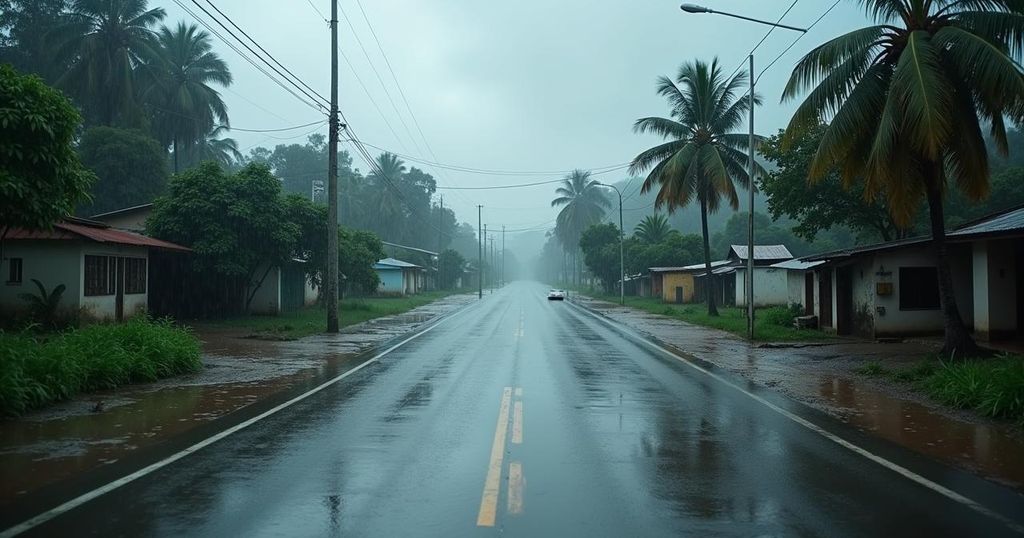Destructive Flooding in West and Central Africa: A Humanitarian Crisis
Torrential rains have caused historic flooding in West and Central Africa, particularly in Nigeria, leading to over 1,000 reported fatalities and displacing hundreds of thousands. The situation is exacerbated by existing humanitarian issues, prompting urgent calls for international assistance as local resources are stretched thin.
Torrential rains have led to severe flooding across West and Central Africa, particularly impacting northeastern Nigeria. The United Nations reports that the floods have affected over 400,000 individuals, showcasing the extensive damage through aerial imagery. Felicity has been overshadowed by catastrophe in Maiduguri, the capital of Borno state. Residents have witnessed devastation including homes being swept away and significant loss of life, with at least 1,000 fatalities reported across multiple nations this year, exacerbating existing humanitarian challenges for populations in Chad, Nigeria, Mali, and Niger. \n \nRescue operations remain ongoing as authorities grapple with the aftermath of the disaster. With increasing water levels from an overflowing dam, the situation grew dire as people attempted to flee the rushing waters. Reports indicate that excessive flooding has led to the death of more than 230 people in Nigeria, 265 in Niger, 487 in Chad, and 55 in Mali, with the latter experiencing its most severe flooding since the 1960s. \n \nDespite producing minimal greenhouse gas emissions, Africa remains particularly susceptible to escalating extreme weather events. The World Meteorological Organization highlighted the necessity for substantial investment, estimating that Africa requires $30-50 billion annually to adapt to worsening weather patterns. Potentially, 118 million Africans may endure the adverse effects of extreme weather by 2030. \n \nThe emotional toll on victims is evident, with accounts of individuals losing everything, including their loved ones and entire households. Many families have been left to navigate the crisis with minimal support from their governments or humanitarian organizations. Governor Babagana Zulum has issued urgent calls for international assistance to address the overwhelming needs caused by the disaster while also acknowledging the essential efforts of local residents who are stepping forward to support one another amid their shared suffering. \n \nAs the rainy season continues and forecasts predict further precipitation, the predicament appears poised to deepen, stressing the need for immediate and comprehensive intervention to alleviate the effects of this unprecedented flooding throughout the region.
This article addresses the severe flooding caused by torrential rains in West and Central Africa, focusing particularly on the disaster’s impact on Nigeria, Chad, Niger, and Mali. The flooding situation has been exacerbated by pre-existing humanitarian challenges, including violence from Boko Haram in Borno state. With over four million people affected and the death toll rising, the necessity for international aid is more urgent than ever. Climate change adaptations are imperative as the region faces increasing vulnerability to extreme weather phenomena, highlighting the important intersection between humanitarian crises and environmental challenges.
In conclusion, the catastrophic flooding across West and Central Africa, primarily impacting northeastern Nigeria, has resulted in substantial loss of life and widespread displacement. A rapidly increasing number of affected individuals underscores the urgent call for international aid and support. Local communities are demonstrating resilience and selflessness in the face of this disaster, yet the looming threat of further extreme weather events necessitates immediate action to mitigate future catastrophes and enhance adaptive capabilities within the region.
Original Source: apnews.com




Post Comment